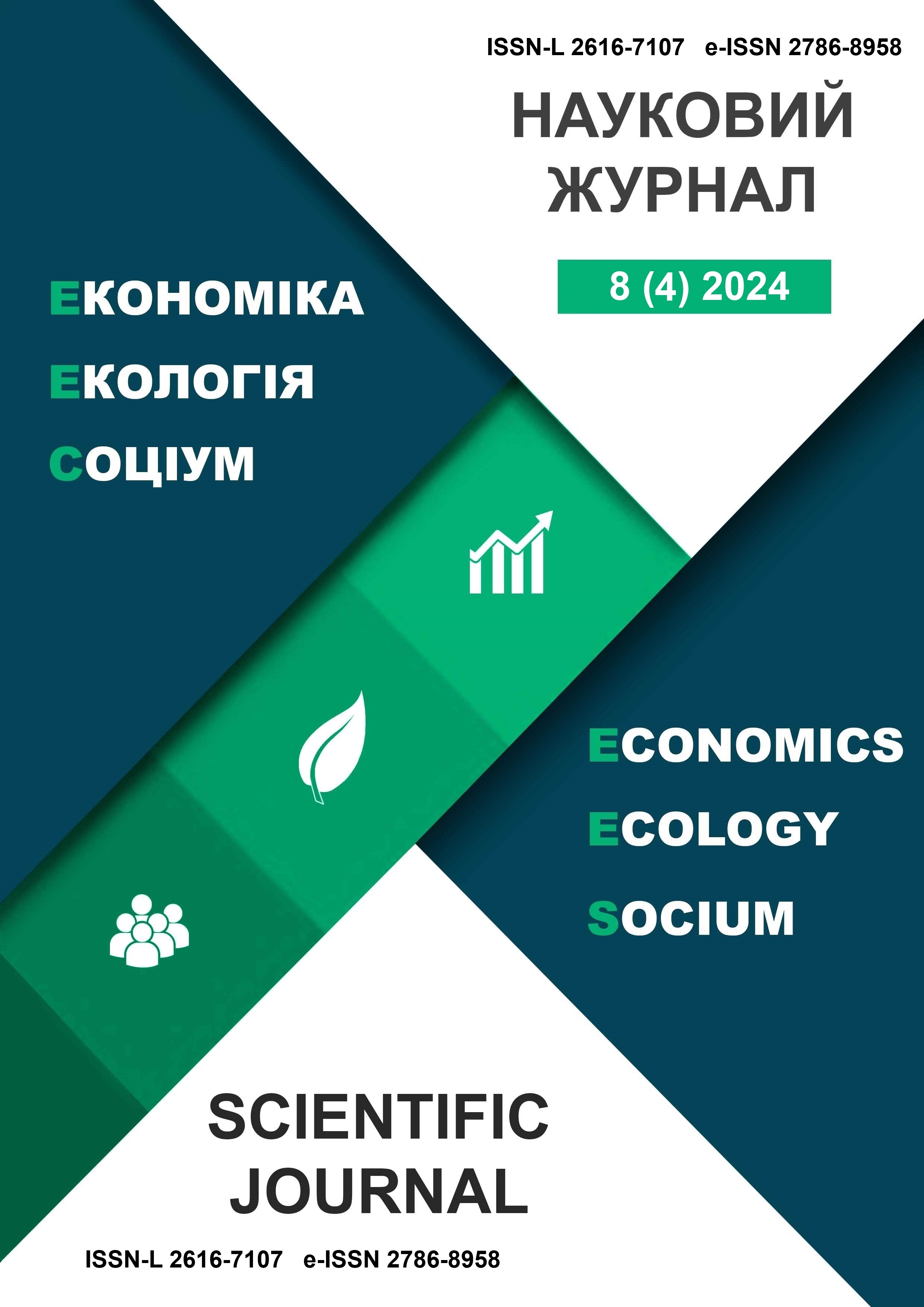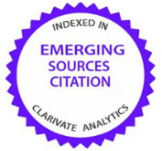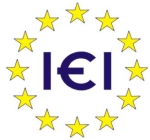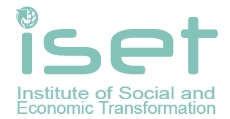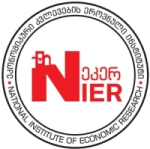Assessing Employee Perceptions of Information Technologies in Public Sector Digitalization
Abstract
Introduction. The increasing role of digitalisation in the public sector is caused by the possibility of improving the quality of public services. However, the effective implementation of digitalisation in public organizations and its use is influenced by technological, organizational, environmental and human factors. Therefore, it is relevant to assess the perception of employees of government bodies and their perception of using information systems and technologies.
Aim and tasks. The goal is to study the resilience of public organisations and employee reactions in crises using information systems. The stated goal determined the survey of employees’ opinions on the effects of the implementation and use of information and communications technology (ICT) in terms of improving communication and coordination in the organisation, crisis response capabilities, and satisfaction with the use of the system.
Results. The study analysed the responses of representatives of various public administration and administrative management levels in Bulgaria, the results of which were analysed using IBM SPSS Statistics. The survey involved 73 employees of public organisations holding various positions, which made it possible to assess the perceptions and impact of ICT use by employees. In the context of this study, it has been proven that information systems technology supports communication and coordination in public organisations. This affects the system’s perceived usefulness and the employees’ handling of unexpected changes (crises). Resolving crises using information and communication technologies affects employee satisfaction, which contributes to increasing organisational resilience.
Conclusions. This study examines the attitude of employees working in public administration toward the use of information and communication systems and the strengthening of the digitalisation process. Based on rank correlation analysis, research hypotheses were proven. It was found that there is a relationship between the use of ICT, improved organisational coordination and communication, crisis management and satisfaction of public sector employees with the use of ICT. The above factors affect organisational resilience and the ability to adapt in the context of digital transformation.
References
Anguelov, K. (2008). Information and communication technologies, as a strategy for the prevention of corruption. Avangard Prima.
Arcila, B. B. (2024). AI liability in Europe: How does it complement risk regulation and deal with the problem of human oversight? Computer Law & Security Review, 54, 106012. https://doi.org/10.1016/j.clsr.2024.106012
Beege, M., Hug, C., & Nerb, J. (2024). AI in STEM education: The relationship between teacher perceptions and ChatGPT use. Computers in Human Behavior Reports, 16, 100494. https://doi.org/10.1016/j.chbr.2024.100494
Chan, C. K. Y., & Tsi, L. H. Y. (2024). Will generative AI replace teachers in higher education? A study of teacher and student perceptions. Studies in Educational Evaluation, 83, 101395. https://doi.org/10.1016/j.stueduc.2024.101395
Chang, W.-L., & Sun, J. C.-Y. (2024). Evaluating AI's impact on self-regulated language learning: A systematic review. System, 126, 103484. https://doi.org/10.1016/j.system.2024.103484
Dimcheva, G., & Stoyanov, I. (2023). Challenges to the application and decision-making using artificial intelligence (AI): Analysis of the attitudes of managers in Bulgarian service companies. In 2023 4th International Conference on Communications, Information, Electronic and Energy Systems (CIEES) (pp. 1-5). https://doi.org/10.1109/CIEES58940.2023.10378811
Dong, W., Pan, D., & Kim, S. (2024). Exploring the integration of IoT and Generative AI in English language education: Smart tools for personalized learning experiences. Journal of Computational Science, 82, 102397. https://doi.org/10.1016/j.jocs.2024.102397
Haesevoets, T., Verschuere, B., Severen, R. V., & Roets, A. (2024). How do citizens perceive the use of artificial intelligence in public sector decisions? Government Information Quarterly, 41(1), 101906. https://doi.org/10.1016/j.giq.2023.101906
Horvath, L., James, O., Banducci, S., & Beduschi, A. (2023). Citizens' acceptance of artificial intelligence in public services: Evidence from a conjoint experiment about processing permit applications. Government Information Quarterly, 40, 101876. https://doi.org/10.1016/j.giq.2023.101876
Kleizen, B., Dooren, W. V., Verhoest, K., & Tan, E. (2023). Do citizens trust trustworthy artificial intelligence? Experimental evidence on the limits of ethical AI measures in government. Government Information Quarterly, 40(4), 101834. https://doi.org/10.1016/j.giq.2023.101834
Kostev, R., & Anguelov, K. (2022). Modern methods of training in national security through Geographic Information Systems. Proceedings of the 2022 10th International Conference on Communications, Information, and Electronics Systems (CIEES), 1-4. https://doi.org/10.1109/COMSCI55378.2022.9912592
Laerd Statistics. (2018). Spearman's Rank-Order Correlation. https://statistics.laerd.com/statistical-guides/spearmans-rank-order-correlation-statistical-guide.php
Larsen, A. G., & Følstad, A. (2024). The impact of chatbots on public service provision: A qualitative interview study with citizens and public service providers. Government Information Quarterly, 41(2), 101927. https://doi.org/10.1016/j.giq.2024.101927
Li, X., & Wang, J. (2024). Should government chatbots behave like civil servants? The effect of chatbot identity characteristics on citizen experience. Government Information Quarterly, 41(3), 101957. https://doi.org/10.1016/j.giq.2024.101957
Lindgren, I. (2024). Ironies of automation and their implications for public service automation. Government Information Quarterly, 41(4), 101974. https://doi.org/10.1016/j.giq.2024.101974
Petrov, K., & Tsonkov, N. (2023). Analysis of the development of intelligent transport systems in the largest cities in Bulgaria. In Proceedings of the 2023 37th International Conference on Information Technologies (InfoTech 2023) (pp. 1-5). https://doi.org/10.1109/InfoTech58664.2023.10266893
Rico, C. I. V., & Laukyte, M. (2024). ETIAS system and new proposals to advance the use of AI in public services. Computer Law & Security Review, 54, 106015. https://doi.org/10.1016/j.clsr.2024.106015
Ruschemeier, H., & Hondrich, L. J. (2024). Automation bias in public administration – An interdisciplinary perspective from law and psychology. Government Information Quarterly, 41(3), 101953. https://doi.org/10.1016/j.giq.2024.101953
Stoyanova, T., & Angelova, M. (2024). Good practices of using artificial intelligence in the digitalization of higher education. Entrepreneurship and Sustainability Issues, 11(4), 44-62. https://doi.org/10.9770/jesi.2024.11.4(3)
Stoykov, S. (2024). The system of education, training, and research in the field of security – Managing change through experience and knowledge. Conference Proceedings Vide. Tehnologija. Resursi - Environment, Technology, Resources, 4, 269-274. https://doi.org/10.17770/etr2024vol4.8213
Szramowiat-Sala, K., Penkala, R., Horák, J., Krpec, K., Hopan, F., Ryšavý, J., Borovec, K., Górecki, J. (2024). AI-based data mining approach to control the environmental impact of conventional energy technologies. Journal of Cleaner Production, 472, 143473. https://doi.org/10.1016/j.jclepro.2024.143473
Toshev, A., Petkova-Gueorguieva, E., Mihaylova, A. A., Kirkov, V., Madzharov, V. G., Lebanova, H., Stoev, S., & Gueorguiev, S. (2024). Digitalization of healthcare and aspects of implementing electronic prescriptions in Bulgaria. Pharmacia, 71, 1-6. https://doi.org/10.3897/pharmacia.71.e130302
Woo, Y., Choi, J., & Kim, D. (2024). Effectiveness analysis of AI-IoT based public health care service for elderly in Korea. Archives of Physical Medicine and Rehabilitation, 105(4), e14. https://doi.org/10.1016/j.apmr.2024.02.038
Xiao, Y., Zhang, T., & He, J. (2024). The promises and challenges of AI-based chatbots in language education through the lens of learner emotions. Heliyon, 10(18), e37238. https://doi.org/10.1016/j.heliyon.2024.e37238
Xu, H., Yang, X., Hu, Y., Wang, D., Liang, Z., Mu, H., Wang, Y., Shi, L., Gao, H., Song, D., Cheng, Z., Lu, Z., Zhao, X., Lu, J., Wang, B., Hu, Z. (2024). Trusted artificial intelligence for environmental assessments: An explainable high-precision model with multi-source big data. Environmental Science and Ecotechnology, 22, 100479. https://doi.org/10.1016/j.ese.2024.100479
Zhu, Z., Zhang, N., & Tan, F. T. C. (2024). Beyond a technological tool: How a platform as a meta-organization enables a successful public service project in China. Information and Management, 61(4), 103956. https://doi.org/10.1016/j.im.2024.103956
If the article is accepted for publication in the journal «Economics. Ecology. Socium» the author must sign an agreementon transfer of copyright. The agreement is sent to the postal (original) or e-mail address (scanned copy) of the journal editions.
